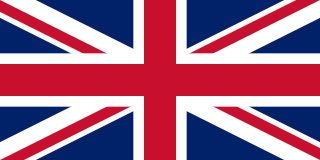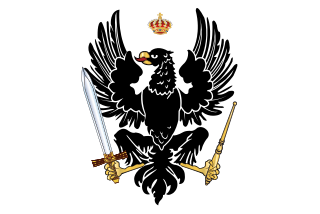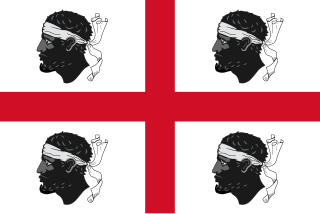
England is a country that is part of the United Kingdom. It is located on the island of Great Britain, of which it covers about 62%, and more than 100 smaller adjacent islands. It has land borders with Scotland to the north and Wales to the west, and is otherwise surrounded by the North Sea to the east, the English Channel to the south, the Celtic Sea to the south-west, and the Irish Sea to the west. Continental Europe lies to the south-east, and Ireland to the west. At the 2021 census, the population was 56,490,048. London is both the largest city and the capital.

The Parliament of the United Kingdom of Great Britain and Northern Ireland is the supreme legislative body of the United Kingdom, and may also legislate for the Crown Dependencies and the British Overseas Territories. It meets at the Palace of Westminster in London. Parliament possesses legislative supremacy and thereby holds ultimate power over all other political bodies in the United Kingdom and the Overseas Territories. While Parliament is bicameral, it has three parts: the sovereign, the House of Lords, and the House of Commons. The three parts acting together to legislate may be described as the King-in-Parliament. The Crown normally acts on the advice of the prime minister, and the powers of the House of Lords are limited to only delaying legislation.

The United Kingdom of Great Britain and Northern Ireland, commonly known as the United Kingdom (UK) or Britain, is a country in Northwestern Europe, off the coast of the continental mainland. It comprises England, Scotland, Wales, and Northern Ireland. The UK includes the island of Great Britain, the north-eastern part of the island of Ireland, and most of the smaller islands within the British Isles, making up a total area of 94,354 square miles (244,376 km2). Northern Ireland shares a land border with the Republic of Ireland; otherwise, the United Kingdom is surrounded by the Atlantic Ocean, the North Sea, the English Channel, the Celtic Sea, and the Irish Sea. The United Kingdom had an estimated population of over 68.2 million people in 2023. The capital and largest city of both England and the United Kingdom is London, whose wider metropolitan area is the largest in Western Europe, with a population of 14.9 million. The cities of Edinburgh, Cardiff, and Belfast are the national capitals of Scotland, Wales, and Northern Ireland, respectively.

The monarchy of the United Kingdom, commonly referred to as the British monarchy, is the form of government used by the United Kingdom by which a hereditary monarch reigns as the head of state, with their powers regulated by the British Constitution. The term may also refer to the role of the royal family within the UK's broader political structure. The monarch since 8 September 2022 is King Charles III, who ascended the throne on the death of Queen Elizabeth II, his mother.

In biology, a kingdom is the second highest taxonomic rank, just below domain. Kingdoms are divided into smaller groups called phyla.

The British Overseas Territories (BOTs) are the fourteen territories with a constitutional and historical link with the United Kingdom that, while not forming part of the United Kingdom itself, are part of its sovereign territory. The permanently inhabited territories are delegated varying degrees of internal self-governance, with the United Kingdom retaining responsibility for defence, foreign relations, and internal security, and ultimate responsibility for governance. Three of the territories are chiefly or only inhabited by military or scientific personnel, the rest hosting significant civilian populations. All fourteen have the British monarch as head of state. These UK government responsibilities are assigned to various departments of the Foreign, Commonwealth and Development Office and are subject to change.

The Kingdom of Prussia constituted the German state of Prussia between 1701 and 1918. It was the driving force behind the unification of Germany in 1866 and was the leading state of the German Empire until its dissolution in 1918. Although it took its name from the region called Prussia, it was based in the Margraviate of Brandenburg. Its capital was Berlin.

The Kingdom of Naples was a state that ruled the part of the Italian Peninsula south of the Papal States between 1282 and 1816. It was established by the War of the Sicilian Vespers (1282–1302), when the island of Sicily revolted and was conquered by the Crown of Aragon, becoming a separate kingdom also called the Kingdom of Sicily. This left the Neapolitan mainland under the possession of Charles of Anjou. Later, two competing lines of the Angevin family competed for the Kingdom of Naples in the late 14th century, which resulted in the death of Joanna I by Charles III of Naples. Charles' daughter Joanna II adopted King Alfonso V of Aragon as heir, who would then unite Naples into his Aragonese dominions in 1442.

The Kingdom of England was a sovereign state on the island of Great Britain from the early tenth century, when it was unified from various Anglo-Saxon kingdoms, until 1 May 1707, when it united with Scotland to form the Kingdom of Great Britain, which would later become the United Kingdom. The Kingdom of England was among the most powerful states in Europe during the medieval and early modern periods.

The Kingdom of Sicily was a state that existed in Sicily and the south of the Italian Peninsula plus, for a time, in Northern Africa from its founding by Roger II of Sicily in 1130 until 1816. It was a successor state of the County of Sicily, which had been founded in 1071 during the Norman conquest of the southern peninsula. The island was divided into three regions: Val di Mazara, Val Demone and Val di Noto.

The Habsburg monarchy, also known as Habsburg Empire, or Habsburg Realm, was the collection of empires, kingdoms, duchies, counties and other polities that were ruled by the House of Habsburg. From the 18th century it is also referred to as the Austrian monarchy or the Danubian monarchy.

Kingdom Hearts is a series of action role-playing games created by Japanese game designers Tetsuya Nomura and Shinji Hashimoto, being developed and published by Square Enix. It is a collaboration between Square Enix and The Walt Disney Company, and is under the leadership of Nomura, a longtime Square Enix employee.

Great Britain is an island in the North Atlantic Ocean off the north-west coast of continental Europe, consisting of the countries England, Scotland and Wales. With an area of 209,331 km2 (80,823 sq mi), it is the largest of the British Isles, the largest European island and the ninth-largest island in the world. It is dominated by a maritime climate with narrow temperature differences between seasons. The island of Ireland, with an area 40 per cent that of Great Britain, is to the west – these islands, along with over 1,000 smaller surrounding islands and named substantial rocks, comprise the British Isles archipelago.

Jeddah Tower or Burj Jeddah, previously known as Kingdom Tower, is a skyscraper construction project in Jeddah, Saudi Arabia. It is planned to be the first 1-kilometre-tall (3,281 ft) building and would be the world's tallest building or structure upon completion, standing 180 m (591 ft) taller than the Burj Khalifa. Located in the north side of Jeddah, it is the centrepiece of the Jeddah Economic City project. After almost five years of inactivity, development work on the project resumed in 2023.

Since 1922, the United Kingdom has been made up of four countries: England, Scotland, Wales and Northern Ireland. The UK Prime Minister's website has used the phrase "countries within a country" to describe the United Kingdom.

The Kingdom of the Netherlands, commonly known simply as the Netherlands, is a sovereign state consisting of a collection of constituent territories united under the monarch of the Netherlands, who functions as head of state. The realm is not a federation; it is a unitary monarchy with its largest subdivision, the eponymous Netherlands, predominantly located in Northwestern Europe and with several smaller island territories located in the Caribbean.

The Heptarchy is the name for the division of Anglo-Saxon England between the sixth and eighth centuries into petty kingdoms, conventionally the seven kingdoms of East Anglia, Essex, Kent, Mercia, Northumbria, Sussex, and Wessex. The term originated with the twelfth-century historian Henry of Huntingdon and has been widely used ever since, but it has been questioned by historians as the number of kingdoms fluctuated, and there was never a time when the territory of the Anglo-Saxons was divided into seven kingdoms each ruled by one king. The period of petty kingdoms came to an end in the eighth century, when England was divided into the four dominant kingdoms of East Anglia, Mercia, Northumbria, and Wessex.

The Kingdom of Sardinia, also referred to as the Kingdom of Sardinia and Corsica among other names, was a country in Southern Europe from the late 13th until the mid-19th century, and from 1297 to 1768 for the Corsican part of this kingdom. The kingdom was a member of the Council of Aragon and initially consisted of the islands of Corsica and Sardinia, sovereignty over both of which was claimed by the papacy, which granted them as a fief, the Regnum Sardiniae et Corsicae, to King James II of Aragon in 1297. Beginning in 1324, James and his successors conquered the island of Sardinia and established de facto their de jure authority. In 1420, after the Sardinian–Aragonese war, the last competing claim to the island was bought out. After the union of the crowns of Aragon and Castile, Sardinia became a part of the burgeoning Spanish Empire.

Kingdom (Korean: 킹덤) is a South Korean period horror television series, created and written by Kim Eun-hee and based on the webtoon series The Kingdom of the Gods (신의나라:버닝헬) by writer Kim Eun-hee and artist Yang Kyung-il. As Netflix's first original Korean series, it premiered on January 25, 2019. It stars Ju Ji-hoon, Bae Doona, Ryu Seung-ryong, Kim Sang-ho, Kim Sung-kyu, and Kim Hye-jun. The first season, and the first episode of the second were directed by Kim Seong-hun, with Park In-je directing the remainder of that season.

















